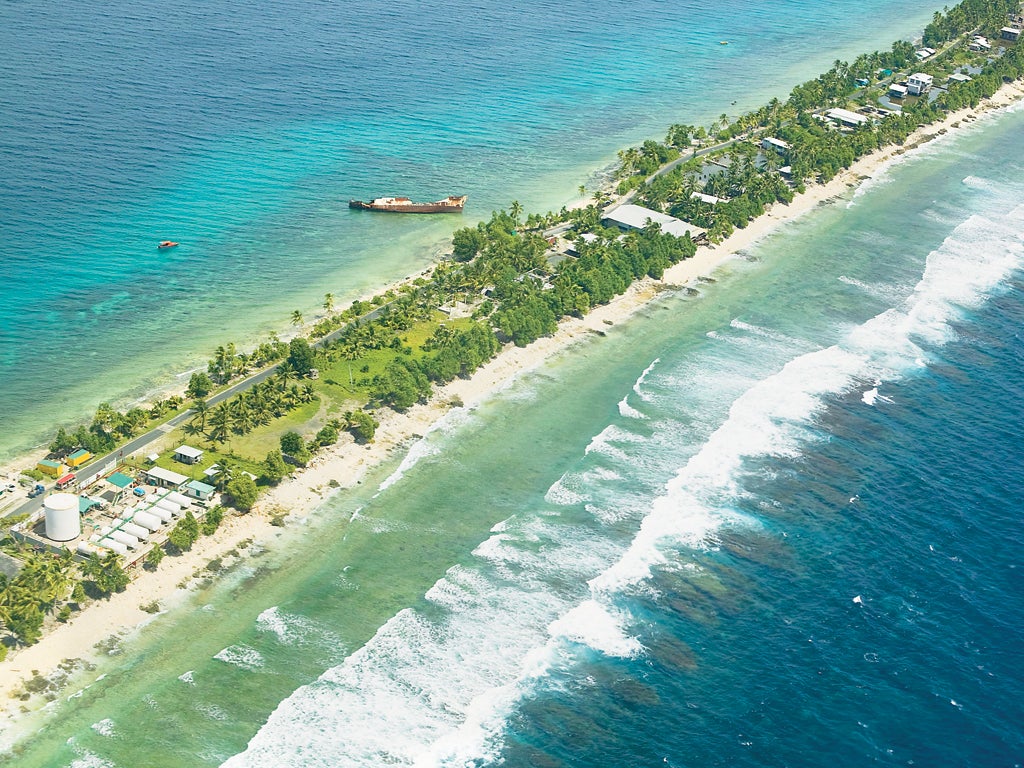Water, water everywhere – but this island has barely a drop to drink

A critical shortage of water has forced the tiny Pacific island nation of Tuvalu to declare a state of emergency.
A former British protectorate which used to be part of the Gilbert and Ellice Islands, Tuvalu is one of the most isolated communities in the world. the main island Funafuti covers just 10sq miles (26sq km) and has no natural water supplies apart from rain. An unusually dry spell has left the islanders almost out of supplies.
As the local authorities admitted yesterday that they were down to two days' water in some parts of the country, a New Zealand air force transport aircraft flew in with fresh supplies and desalination units. The New Zealand Red Cross is also contributing aid.
Tuvalu is roughly halfway between Australia and Hawaii and only 16ft (5 metres) above sea level at its highest point. Last week the Red Cross issued a report blaming the La Niña weather pattern.
But the problem is not an isolated one: in recent years, the islands have suffered rising sea levels that have eroded much of the coastline and added to the salination of the soil. Last month Prime Minister Willy Telavi warned the UN that global warming threatened his country's very existence.
When it does rain, the population of about 11,000 collect the water from their roofs and store it in above-ground tanks. When storage systems run low, they tap emergency supplies from government and community cisterns.
With even these at risk of drying up, Tuvaluans are facing the very real prospect of a threat to their nation's survival. With no natural streams, rivers or underground water, subsistence farming traditions have also been threatened.
The arrival of international aid is unlikely to provide a long-term solution.
The island has had to be resourceful to survive its problems, which are not only environmental. Recently a trust fund set up by Britain and several other nations has suffered badly in the global financial crisis.
One way of raising funds to make up that shortfall was the sale of the country's unique internet domain name suffix, .tv. But even this has failed to be the moneyspinner the government had hoped.
Although a Californian company offered an advance payment of $50 million – more than half of Tuvalu's annual gross domestic product at the time – early promises of lucrative annual payments for the right to lease the initials tv have proved wildly optimistic.
These days Tuvalu gets most of its export income from copra – from which cocoanut oil is extracted – the sale of tuna fishing licences and postage stamps, which are highly prized by philatelists.
But the government admits that its annual outgoings far exceed its income. With poor soil and little in the way of crops, Tuvalu has to rely on expensive imported processed food to feed its people. If the rains do not come soon, it might have to start paying for fresh water supplies, too.
Join our commenting forum
Join thought-provoking conversations, follow other Independent readers and see their replies
Comments